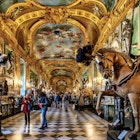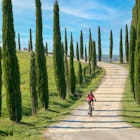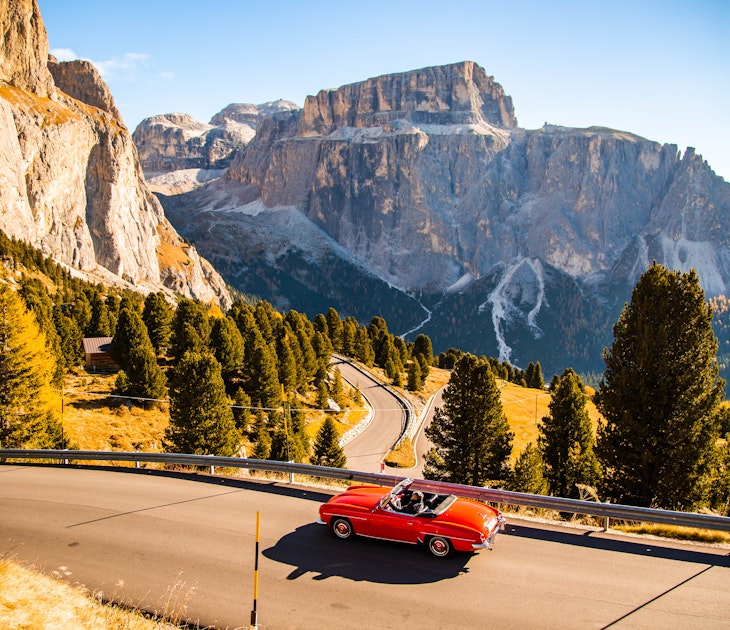
The best free things to do in Turin: stretch your euros even further with our top tips


Enjoy the view of the Mole Antonelliana, a major landmark building in Turin © iStockphoto / Getty Images
As with every major Italian city, elegant Turin has its fair share of world-class museums and art galleries commanding an admission fee. But for budget travelers, the wide porticoed streets and grandiose squares of Piedmont’s understated capital make a beautiful starting point: Turin’s ornate baroque architecture makes it a ravishing spot to soak up Italian elegance without spending a cent. Or get to know a local on a free walking tour.
Many museums, including the blockbuster Museo Egizio, are free to kids under five, any visitor on their birthday (bring ID with proof of birth date), and to every donna (woman) on International Women’s Day (8 March). Or invest in a Torino+Piemonte Card (€29 for 24 hours) to unlock the city’s unmatched treasure chest of Unesco-listed Savoy palazzi (palaces) and dozens of other sights for ‘free’.

Get around on foot or by low-impact tram
Unsung Turin is relatively compact and affordable compared to Rome, Florence and other more touristed Italian cities. It costs nothing to cruise around downtown Turin on foot and the reward is soul-soaring views of the surrounding Alps at every turn. Or pay €4 to rattle around by tram all day with a one-day public transport ticket.
Watch out for the revival of historic tram line 7, temporarily suspended by the Covid pandemic. Launched to promote the environmentally low-impact form of public transport, the ‘mobile museum’ takes visitors on a circular tour of Turin’s main squares and avenues in vintage, racing-green tram wagons from the 1930s and 50s.
Poke around an icon of early 20th-century architecture
No single building is more evocative of Turin’s Herculean industrial heritage than its landmark Fiat factory in Lingotto. Considered one of Italy’s most hallowed examples of early 20th-century industrial architecture, the 1923 car factory closed in 1982 and was later redesigned by Italian architect Renzo Piano as a shopping mall, congress center and exhibition hall. Allow ample time for browsing and taking in the aura of the enormous, five-story building.
The rooftop – with a 1920s test track now used to take new-gen e-Fiat 500s for a debut spin and recently planted urban garden with yoga and meditation areas – is only accessible via the ticketed Pinacoteca Giovanni e Marella Agnelli. Visiting the modern art gallery and track is free however if you are a guest at the DoubleTree by Hilton Turin Lingotto hotel, inside the original factory hall.

Time travel on Piazza Castello
Amble around regal Piazza Castello, the city’s most elegant square framed by the 17th-century Palazzo Reale and Palazzo Madama – the palace’s rear is the original medieval construction, while the baroque facade was added in the 1700s. Contemplate its dual-faceted façade to time-travel from the 16th century, when the palace was owned by the powerful Medici family, to 1871 when it became the first seat of the Italian Senate Italy’s unification.
Plog and play green at Eataly
Piedmont spawned the global Slow Food movement and its capital cradles the Eataly mothership – a staggering space celebrating regional food, wine and culinary culture in Lingotto’s Fiat complex. Themed dinners, masterclasses, cooking workshops and live cooking demonstrations usually involve a fee, but the green-thinking food hall hosts plenty of free tastings, events and happenings too. Plogging in the Lingotto neighborhood (an environmentally friendly combo of jogging and picking up litter), Vermouth tastings and kid-friendly educational workshops are regular freebies. Check Eataly’s Facebook page for the month’s diary.

Weekend with locals in Parco Valentino
The passeggiata (afternoon stroll) is as sacred in Turin as any other Italian city. At weekends families flock to the seemingly endless, grassy grounds of 19th-century Parco Valentino to stroll along the Po river banks, peruse botanical gardens, snap selfies in front of mock chateau Castello del Valentino and kick balls around. Joggers enliven serpentine footpaths by day, romancing couples come dusk. Don’t miss the Borgo Medievale, a replica 15th-century village complete with fortress, prisons and beautifully recreated kitchen, herb and flower gardens.
Get lost in the Roman quarter
Delve into the heart of Roman-era Augusta Taurinorum in the Quadrilatero Romano neighborhood, an atmospheric tangle of tiny cobblestoned streets and squares. Admire remains of the Roman city walls and red-brick Porta Palatina, the colony’s well-preserved gateway from the 1st century BCE. Little remains of the Roman Amphitheatre or the second smaller theater that stood on the site where the Cattedrale di San Giovanni Battista now is. Nip into the cathedral to enjoy the peal of bells emanating from its freestanding belfry and learn about the Holy Shroud of Turin, stashed away in a concealed casket in the 15th-century cathedral.
Promenade like royalty in the Giardino Reale
Palazzo Reale is ticketed, but its manicured gardens – Giardino Reale – are free to mooch at leisure and provide a peaceful respite from Turin’s busy, traffic-clogged streets. Trees on the garden’s lower level frame the tip of Mole Antonelliana, a 167m-high (548ft) tower built as a synagogue in the 19th century and an emblem of contemporary Turin.

Window shop in all weathers
Window-shopping in Turin is particularly delightful thanks to a myriad of porticoes, built for the Savoy dynasty in the 1600s to ensure safe, dry passage between royal residences. Over the centuries the elegant arcades framing regal Piazza Castello were extended to other piazzas and boulevards – clocking up 18km (11mi) of covered walkways in all. Those lacing the length of Via Pietro Micca, Via Roma and Via Po are particularly charming. Beneath the porticoes of the latter, browse old-school bancarelle (stalls) piled high with antiquarian and second-hand books.
Mooching around independent boutiques and cafes tucked inside old-world covered passages – another royal tactic to encourage wandering through the city in all seasons – is equally delightful. Galleria Subalpina near the Museo Egizio; Galleria San Federico, a stone’s throw from the Chiesa San Carlo di Borromeo; and Galleria Umberto I, right by Porta Palazzo, are all beautiful.
Get high – on the natural and sacred
Hills – foothills of the snow-capped Italian Alps and greener, lower-lying Colline Torensi – encircling the city sport stupendous views. Emblematic Basilica di Superga can be spotted from all over Turin, and while there is a fee to enter the hillside basilica, wandering the vast grounds of the lavish 18th-century church rewards with a scenic 1.5km (mile-long) hike spiked with soul-soaring city vistas.
No religion is required to appreciate the artistry and craftsmanship inside Turin’s historic churches – and many are free to access. Across the Po from Piazza Vittorio Veneto, 19th-century striking Chiesa della Gran Madre di Dio was built like a mini-Pantheon to commemorate the return of Vittorio Emanuele I. If you’ve seen the 1969 classic movie, The Italian Job, these are the church steps driven down by Michael Caine and his gang in their Mini Coopers. Post-church, head uphill to Monte dei Cappuccini, crowned by the bijou Chiesa di Santa Maria del Monte dei Cappuccini and panoramic views across the Po River and Turin rooftops. The show at sunset is spectacular.
Quench your thirst at toretti and stamp for good luck
Bring your own water bottle to fill up for free at one of the city’s many drinking-water fountains, handsomely capped with a bull’s head. Nicknamed toretti or ‘little bulls’ in the Piedmontese dialect, the animal is a symbol of the city and appears everywhere, be it on the Torino football club crest or the occasional street-art mural. On Piazza San Carlo, rub your foot across the genitals of the gold brass bull embedded into the stone pavement, beneath the porticoes in front of historic Caffè Torino – it brings good luck.

Lap up local life at the market
Even if you don’t spend a cent, mooching Turin’s epic Porta Palazzo – one of Europe’s largest outdoor markets – is a prime op to learn what fresh produce is in season, improve your epicurean knowledge of regional Piedmontese cuisine and meet local producers, farmers and artisans. Butchers, bakers and cheesemongers fill the indoor arcades to bursting.
Equally action-packed and a fascinating window on local life is the open-air Gran Balon antique and flea market which sees 300-odd vendors set up stalls on backstreets winding to the edge of the Dora River on the second Sunday of each month. Bustling with bargain hunters, it’s an incredible trove of vintage goods.
Hike along the Po river or up a hill
Lifeblood to the city, the mighty River Po cuts through Turin and across the north of Italy. Admire its swirling waters and scenic viewpoints along a marked footpath that begins by the Regina Margherita bridge and trails the massive waterway for 30 minutes to Parco Valentino. The footpath is flanked on one side by the historic city center and, on the other, by verdant colline (hills) peppered with pastel-colored art nouveau villas.
Or hike in the Colline Torinesi (‘Turinese Hills’) – forested hills, flower-strewn meadows and striped vineyards yielding Collina Torinese DOC wines east of the city. Contact Turin Tourism for trail information and maps, including the Superga Vezzolano Crea linking the Basilica di Superga with the Sacro Monte di Crea in Monteferrato via 64km (40mi) of old-world villages, vines and rolling hills.
You may also like:
The 5 best day trips from Turin
Piedmont’s top dishes and where to try them
22 free things to do in Milan
Explore related stories



 Art and CultureFrance itineraries: 5 routes to see the best of the country
Art and CultureFrance itineraries: 5 routes to see the best of the countryOct 24, 2024 • 13 min read






